Past Symposiums
Here you can find information and presentation slides from past symposiums.
2015: Healthy Environments for Growing Up, Dr. Louise Chawla
The 11th Annual Sustainability and Environmental Research Symposium focuses on the effects of nature on children and how to evaluate the contribution of contact with nature.
A big thank you to the sponsors this year - Efficiency Nova Scotia, the Nova Scotia Department of Environment, and Just Us Coffee.
Dr. Louise Chawla
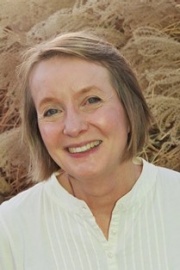
Louise Chawla is a Professor in the Environmental Design Program at the University of Colorado in Boulder, Director of the Children, Youth and Environments Center for Community Engagement at the university, and co-editor of the journal Children, Youth and Environments. Her attention to the benefits of contact with nature for human health springs from a professional career that has focused on the creation of environments where children can thrive, with a special interest in access to nature in cities.
An initial interest in children’s informal learning in their communities—including learning about the natural world--led her to a masters in Education and Child Development at Bryn Mawr College and a doctorate in Environmental Psychology at the City University of New York.
She has written widely on children and nature, children in cities, and the development of committed action for the environment, including the books In the First Country of Places: Nature, Poetry and Childhood Memory and the edited collection Growing Up in an Urbanising World. Recently, she was primary author of Policy Statement 20137 of the American Public Health Association on “Improving Health and Wellness through Access to Nature.”
When she served as a Fulbright Scholar at the Norwegian Centre for Child Research, she revived the Growing Up in Cities project of UNESCO, which involves urban children in evaluating and improving their local communities and forms the basis of the Growing Up Boulder project, a current partnership with the CYE Center, the City of Boulder and the Boulder Valley School District.
Talk 1: March 12, 2015 - 7 pm
Children, Youth and the Natural Environment
This talk surveys research on the contributions of contact with nature for happiness and well-being, with a focus on childhood and adolescence as critical stages of human development when fundamental relationships with the natural world are formed. In light of accumulating evidence of the importance of nature in environments of everyday life for human health and happiness, it suggests areas of overlapping interests that invite new alliances between the fields of health and sustainability.
This talk is co-sponsored with the College of Sustainability and is part of the Winter 2015 ESS Lecture Series.
7:00 - 8:30 p.m. Thursday 12 March in Ondaatje Hall, Marion McCain Arts & Social Sciences Building, 6135 University Avenue.
All welcome. Free of charge. Limited seating - please arrive early.
Talk 2: March 13, 2015 - 1 pm
Healthy Environments for Growing Up: How Do We Evaluate the Contribution of Contact with Nature?
This talk looks at emerging attention to contact with nature for health and well-being in children and current methodological approaches to its measurement. It discusses how the capabilities approach to well-being can be adapted to child development and the need to broaden measures of well-being in response. Drawing on ethnographic and action research, it illustrates how conventional medical models that seek to heal disease and deficits through nature contact can be supplemented by assessments of the role of nature in positive youth development.
This talk is the main plenary of the 11th Annual Sustainability and Environmental Research Symposium.
1:00 - 2:00 p.m. Friday 13 March in the Great Hall of the University Club, 6259 Alumnia Crescent (just off South Street).
All welcome. Free of charge. Limited seating - please arrive early and enjoy the student poster presentations and light luncheon buffet.
Thank you to our generous 2015 supporters



Along with continued support from
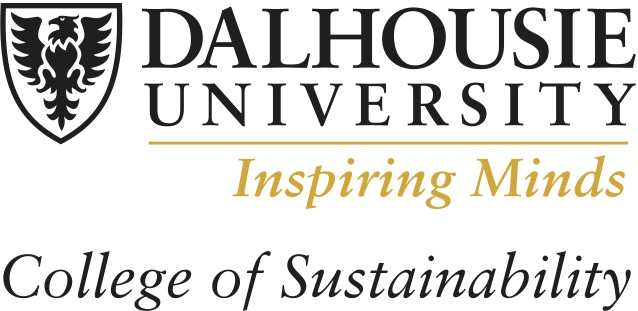
We also wish to acknowledge support from the Elizabeth May Chair in Sustainability and Environmental Health endowment, made possible by the generosity of an anonymous donor.
2014: Environmental Toxicants, Dr. Bruce Lanphear
The 10th Annual Sustainability and Environmental Research Symposium is focused on environmental toxicants and their effects on children (download the SERS 2014 Poster).
Please click here for a detailed schedule, a list of selected abstracts and some information about this year's sponsors, the Nova Scotia Department of Environment, JustUs Coffee and the College of Sustainability.
Dr. Bruce Lanphear

We are pleased to welcome Dr. Bruce Lanphear (MD, MPH), a Clinician Scientist at the Child & Family Research Institute, BC Children's Hospital and Professor in the Faculty of Health Sciences at Simon Fraser University in Vancouver, British Columbia. Over the past decade, Dr. Lanphear has become increasingly vexed by our inability to control the "pandemic of consumption" - the largely preventable, worldwide epidemic of chronic disease and disability due to environmental toxicants and excess consumption. He is leading an effort to build an online Atlas of Environmental Health to enhance public health understanding of how environmental influences impact human health.
Dr. Lanphear will be sharing his expertise and ideas through two public talks.
Talk 1: March 6, 2014 - 7pm
Little Things Matter: The Impacts of Toxins on the Developing Brain
The impact of toxinson the developing brain is usually subtle for an individual child, but the damage can be substantial at the population level. Low-level exposures to numerous toxins, such as lead, tobacco, pesticides and flame retardants - have been implicated in the development of intellectual deficits and mental disorders in children. Yet, too little has been done to protect children from these ubiquitous, but insidious toxins. Dr. Lanphear will provide an overview of the population impact of toxins on the developing brain and discuss the implications for protecting children from environmental toxins.
This talk is co-sponsored by the College of Sustainability and is part of the Winter 2014 ESS Lecture Series
7:00 - 8:30 p.m. Thursday 6 March in Ondaatje Hall, Marion McCain Arts & Social Sciences Building, 6135 University Avenue
All welcome. Free of charge. Limited seating - please arrive early.
Presentation Slides [PDF - 2843kB]
Talk 2: March 7, 2014 - 1pm
Low-level Toxicity of Environmental Toxicants: Much Ado About Nothing?
Environmental toxicants are regulated as though there is a linear relationship and a threshold. Yet emerging evidence indicates that there is no apparent threshold for many established toxicants. Moreover, the dose-response relationship for some toxicants, such as lead, is supralinear; that is, for a given exposure, the effects are steepest at the lowest levels. This presentation, which focuses on childhood lead exposure and IQ scores, will summarize studies about toxicants that exhibit a supralinear dose-response relationship. These studies, which indicate that we have underestimated the impact of established toxicants on disease and disability, provide a context to discuss whether regulatory standards for environmental toxicants are adequate to protect human health.
This talk is the main plenary of the 10th Annual Sustainability and Environmental Research Symposium
1:00-2:00 p.m. Friday 7 March in The Great Hall of the University Club, 6259 Alumnia Crescent, (just off South Street)
All are welcome. Free of charge. Limited seating - please arrive early and enjoy the student poster presentations.
Presentation Slides [PDF - 2007kB]
Thank you to the 2014's generous supporters.


Along with the continued support from the College of Sustainability.

We also wish to acknowledge support from the Elizabeth May Chair in Sustainability and Environmental Health endowment, made possible by the generosity of an anonymous donor.
2013: Sustainable Happiness, Dr. Catherine O'Brien
The 9th Annual Sustainability and Environmental Research Symposium is all about happiness - Sustainable Happiness!
Thank you to all of the poster participants and to all who attended the lectures by Catherine O'Brien. You can read more about the event on the Dalhousie News website.
A special thank you to Kelsey O'Brien for organizing the event and to the student volunteers from the College of Sustainability.
The SERS 2013 Poster Prize winners are:
1. Undergraduate: Emilie Novaczek: Is tourism an enemy to anemones? Examining the impacts of marine tourism on coral reefs in San Andres, Colombia
Tiffany Vass: What is the significance of community wind energy? The influence of local initiation, participation, and investment on local perceptions
2. Graduate: Catherine Hefler: Exploring the role of productive urban greenspace in the built environment
Dr. Catherine O'Brien
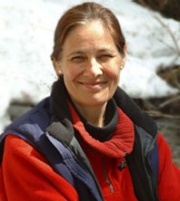
Dr. Catherine O'Brien has been actively engaged in sustainability efforts locally, nationally and internationally for more than 20 years. Catherine is an education professor at Cape Breton University where she developed the first university course in the world on sustainable happiness based on the groundbreaking concept of sustainable happiness she created. Her research explores how sustainability and happiness studies can contribute to a more sustainable future. She co-developed a course on leadership, happiness, sustainability and health for UC Berkeley's School of Public Health Management. She recently participated in a 2.5 year pan-Canadian project that incorporated sustainable happiness for children's health and well-being. Working with US and Canadian colleagues she co-developed an online course on sustainable happiness for the general public. Publications and resources are available at: www.sustainablehappiness.ca.
2012: School Gardens and Children's Health, Dr. Nancy Wells
The 8th Annual Sustainability and Environmental Research Symposium brought together students and faculty from Nova Scotia universities and colleges to showcase their research accomplishments and celebrate the depth and breadth of research on sustainability and the environment. This year the Symposium provided an opportunity for other organizations, institutions and members of the public working on environmental issues to learn more about academic research on sustainability and environment issues and to showcase their own work.
Dr. Nancy Wells
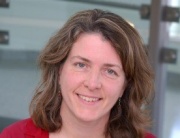
The keynote address about School Gardens and Children's Health was given by Dr. Nancy Wells, an environmental psychologist in the Department of Design & Environmental Analysis at Cornell University. Dr. Wells studies the effects of the built and natural environment on human health and health behaviors throughout the life course. Her presentation focused on the role of school gardens as an approach to improving nutrition, increasing physical activity, and expanding ecological literacy in children.
Presentation Slides [PDF - 22885kB]
2011: Stressors on Lake Ecosystems, Dr. John Smol
In 2011 the annual SERS was integrated with the annual APICS Aquaculture and Fisheries, Biology and Environmental Studies conferences. This was the first time that all three APICS confefences were held jointly and hosted by Dalhousie University.
The conference highlighted the scientific contributions of outstanding undergraduate and graduate students, and allowed students to explore career opportunities and make connections in industry and the broader community.
We were proud to be a sponsor of the event and hosted a research presentation by Dr. John Smol as part of our new Distinguished Speaker Series.
Dr. John Smol

Dr. John Smol OC, PhD, FRSC is a professor in the Department of Biology at Queen’s University where he is also holder of the Canada Research Chair in Environmental Change, was the founding editor of the Journal of Paleolimnology and is currently editor-in-chief of the journal Environmental Reviews. He is also the series editor of the book series Developments in Paleoenvironmental Research and is on the editorial boards of several other journals.
One of the greatest challenges faced by ecologists, water quality managers, and other environmental scientists is using appropriate time scales. Due to the general lack of reliable long-term monitoring data, it is often difficult to determine the nature and timing of ecosystem changes. In lieu of direct monitoring data, paleolimnologists have developed a variety of physical, chemical, and biological approaches to track past changes in aquatic ecosystems using proxy data archived in lake and river sediments.
This presentation summarizes a few recent ecological examples of our research that have studied the effects of multiple stressors on lake ecosystems. The problems of contaminant transport, eutrophication, acidification and the over-riding effects of recent climatic change will be highlighted, including the challenges that lake managers must face when dealing with multiple stressors.
Presentation Slides [PDF - 8283kB]
2010: Everyday Chemicals and Human Health, Rick Smith
The 6th annual Sustainability and Environmental Research Symposium (SERS) symposium provided an opportunity for undergraduate students, graduate students, faculty, researchers and others from across Nova Scotia to share research related to sustainability and the environment. The symposium gave researchers a chance to present their work, while giving students, faculty and the general public an opportunity to learn about existing research and get involved in future projects. It is a networking opportunity out of which it is hoped that future collaborations may develop. The symposium aimed to facilitate an exchange about environmental research across disciplines.
Rick Smith
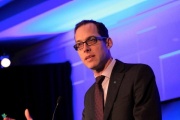
Rick Smith is a prominent Canadian author and environmentalist. He is Executive Director of Environmental Defence Canada (since 2003) and co-author, with Bruce Lourie, of "Slow Death by Rubber Duck: How the Toxic Chemistry of Everyday Life Affects Our Health", a surprising look at everyday pollutants and the ease with which they accumulate in the human body.
See the video of how Rick Smith and Bruce Lourie decide to experiment by exposing themselves to the products we use every day and how the chemicals in these products work their way into the our bodies. Rick experimented with phthalates (in toys and personal care products); bisphenol A (found in plastics); brominated flame retardants (found in upholstered products and electronics) and triclosan (the active ingredient in many anti-bacterial products).
2009: Environmental Education and Sustainability, Dr. David Orr
On March 20th, 2009, Dalhousie University’s Environmental Programs and Elizabeth May Chair in Sustainability and Environmental Health hosted the 5th annual Sustainability and Environmental Research Symposium. This event was an opportunity for students, researchers and the environmental community to present posters on a wide variety of topics related to environment and sustainability. The symposium featured a keynote address from world renowned environmental educator Dr. David Orr and a reception with environment and sustainability experts.
Dr. David Orr
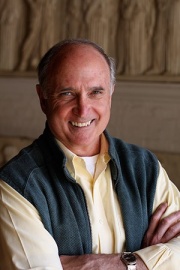
David Orr is contributing editor of Conservation Biology. He is a Trustee of the Educational Foundation of America and the Compton Foundation. He serves on the Boards of the Rocky Mountain Institute (CO), Second Nature (MA), the Center for Ecoliteracy (CA), and the Center for Respect of Life and Environment. He is also an advisor and consultant to the Trust for Public Land, the National Parks Advisory Committee, and other organizations. He is a frequent lecturer at Schumacher College (UK) and has lectured at hundreds of colleges and universities throughout the U.S.
He is perhaps best known for his pioneering work on environmental literacy in higher education and his recent work in ecological design. He raised funds for and spearheaded the effort to design and build a $7.2 million Environmental Studies Center at Oberlin College, a building described by the New York Times as "the most remarkable" of a new generation of college buildings and selected as one of 30 "milestone buildings" in the 20th century by the U.S. Department of Energy.
2008: Food Sustainability
Food is one of humanity’s most important resources. Much of the food that we now consume as North Americans is no longer grown locally; in fact, our food travels for thousands of kilometers to reach our tables. As the Nova Scotia Environmental Goals and Sustainable Prosperity Act envisages that we will have one of the cleanest and most sustainable environments in the world by 2020, food sustainability is an issue that is integrally linked to this vision.
To stimulate a discussion around this significant issue, a panel presentation entitled Toward Food Sustainability: From Global to Local was hosted by Dalhousie University on Friday March 14th, 2008.
Panelists included: Dr. Randall Westgren, Professor of Agri-Food Management at the University of Illinois; Dr. Ralph Martin, Nova Scotia Agricultural College and founding Director of the Organic Agriculture Centre of Canada; Dr. Peter Tyedmers, School for Resource and Environmental Studies, Dalhousie University; Marla MacLeod, Food Miles Project Coordinator, Ecology Action Centre; and Sean Gallagher, Proprietor of Terroir: Local Source Catering.
Dr. Westgren gave an overview of the current global food industry situation, tracing the food supply chain from farm to market, and highlighting opportunities for change. Dr. Martin spoke about organic agriculture in Nova Scotia and Dr. Tyedmers talked about sustainability in aquaculture. Ms. MacLeod addressed travel distances involved with Nova Scotia’s current food supply and social, economic, and environmental benefits of a more locally based diet. Mr. Gallagher shared his perspectives on opportunities for change in the local food industry.
This event took place in the Potter Auditorium of the Kenneth C. Rowe Management Building, Dalhousie University, 6100 University Avenue. It was part of the annual Sustainability and Environmental Research Symposium. It was sponsored by Environmental Programmes at Dalhousie University and the Elizabeth May Chair in Sustainability and Environmental Health.
2007: Global Ecological Integrity Group
The largest meeting in the GEIG's 15 years of operation was hosted by the Elizabeth May Chair in Sustainability and Environment at Dalhousie University in Halifax, Nova Scotia,June 23-27, 2007, with 65 delegates from 16 countries. The meeting comprised the broad array of the Group’s disciplinary expertise from the fields of biology, ecology, economics, ethics, geography, law, medicine, philosophy, and public health. The mission of GEIG is to "push the boundaries of scholarly endeavor through inter- and trans-disciplinary engagement on matters affecting and governing the sustainability of life for both present and future generations."
General consensus is that we have to use qualitative measures such as entropy, energy, and the Ecological Footprint to analyze our impact on the environment and ecological limits for life on Earth. Existing analysis shows that we have to stop population growth and significantly reduce our individual use of resources forthwith in order to better ensure our sustainability, indeed, our very survival. Our problems include global warming, soil erosion, loss of biodiversity and habitat, pollution of soil, air, water, and ether (EMI), and the accelerated evolution of the pathogens from large numbers of very dynamic micro environments.
Analyses of our economical/industrial systems and psychological and ethical makeup show that we tend to ignore truth via denial, misinterpretation, deception, misinformation, and propaganda. It is our role and moral duty to engage the mass media and governments to work closely with scientists in this field to provide balanced information so that properly informed decisions for introducing effective measures can be taken which will better ensure a stable environment and stop ecological degradation.
If this will not happen now, our chances of survival are indeed bleak. This is a last call. We have to get active as individuals and as a society to implement effective measures.
For more information, please visit the GEIG website.
